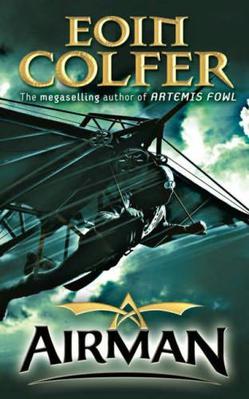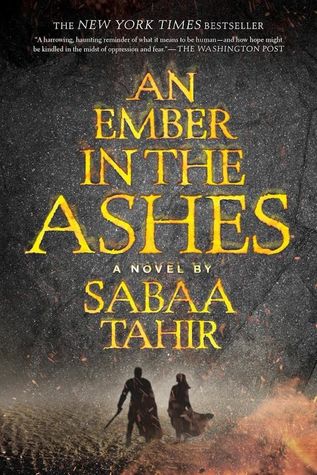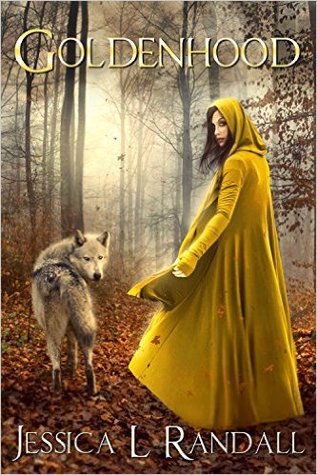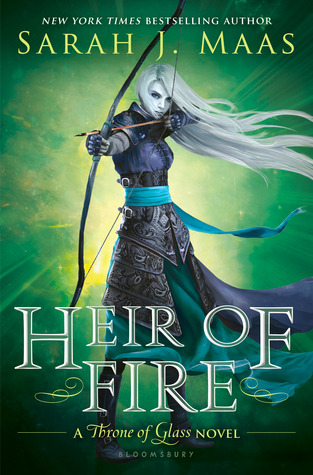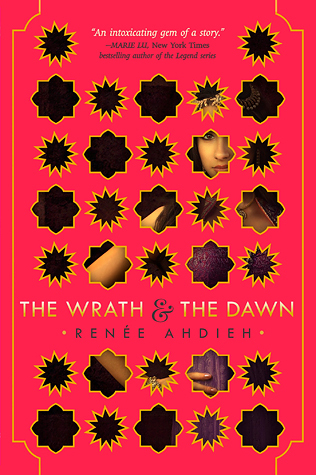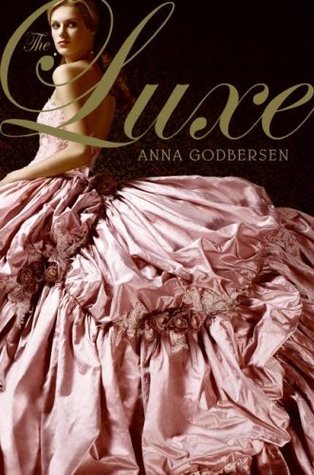So, we're almost done with the first quarter of 2016, and I wanted to do a quick update on the books I've read for my reading challenge. This includes both the Popsugar Reading Challenge categories for 2016, and a few more categories I pulled from another challenge. Here are the updates, and if I do do say myself, I don't think I've done too bad! I have a few more titles checked out from the library, too, so I should be making some more progress soon.
Completed
-A book written by a comedian. I read Mindy Kaling's
Is Everyone Hanging Out Without Me? for this. Mindy is charming but, as with most memoirs, I can't help but wonder what's
not on the page, and I had a few frustrations with some of her views on various subjects. That said, this was a fun, quick read.
-A New York Times bestseller. I took on
The Cuckoo's Calling by Robert Galbraith/J.K. Rowling for this, and while I think it's interesting, I was puzzled by how slow it moved for a mystery. Still, Rowling has a way of creating wonderful characters, and I'll definitely continue with the series.
-A book set in Europe. Following up on Elizabeth bard's
Picnic in Provence from last year, I read the book that actually preceded it,
Lunch in Paris. I enjoyed it, despite some frustrating tense-flipping that I absolutely cannot understand--how did that make its way into the book? How? Still, a cute love story and memoir of time in Paris, food and all.
-A book about a road trip. Road trips annoy me, so this category didn't thrill me, until I realized halfway through Rae Carson's
Walk On Earth a Stranger that it fit the bill! Hah!
Walk on Earth is not your typical road trip, though, as it takes place during the early days of the California Gold Rush in the mid-nineteenth century. It was much more interesting than a normal road trip story. Carson is such a great writer, and I can't wait to see what's next from her.
-A book that's under 150 pages. For this I read
Goldenhood by Jessica L. Randall. It was a short read but not as engrossing as I had hoped; but then, I think Randall's writing has matured a bit since she wrote this and I'd be more than open to reading another fairytale adaptation from her pen.
-A book with a blue cover. Years after reading Maria V. Snyder's Study series, I finally read
Sea Glass, the second book in her Glass series which uses a secondary character from the Study series as the main. While I think Snyder has an interesting world, I think she sometimes tries to do too much at once and ends up dropping threads of plot,
and she keeps trying to push this super abusive relationship as being romantic, which I do not like. Still, I'm planning on finishing the series with the hope that she'll put that straight to bed as a "wow, that was not healthy, what was I thinking?" sort of thing.
Still To Come
-A science-fiction novel. This is where I'm going to use
Wool by Hugh Howey. I think it tends more toward straight sci-fi than dystopian, anyway, and I'm excited to read it.
-A book based on a fairy tale. I adore fairy tales, so this category had a whole bunch of possibilities for me! I settled on Gregory Maguire's
Confessions of an Ugly Stepsister, which is quite clearly an adaptation of Cinderella from the stepsister's point of view. I read
Wicked in high school and found it good but
weird, so I'm interested in seeing how this one plays out.
-A National Book Award winner. I don't really know much about book awards, as I tend to ignore them in favor of reading whatever interests me at the time. So I had to pull up the
list of National Book Award winners to have something to go off for this one. Most of them didn't really intrigue me (who decides what makes a book award-worthy, anyway?) but I eventually picked
The Shipping News off the list as looking at least mildly interesting.
-A book you haven't read since high school. This is hard. I tend to re-read books that I like on a fairly regular basis; hardly a year goes by when I don't re-read most of Tamora Pierce's works in a one-week binge. That said, I
know that the last time I read Peter Dickinson's
The Ropemaker was in high school, because I then lent it to someone who never returned it. So I'll read that for this category.
-A book set in your home state.
-A book translated to English. I'm thinking
Toilers of the Sea for this one.
Les Miserables, which is probably about on par with
The Hunchback of Notre Dame for Victor Hugo's most famous book, is one of my favorites, so this should be a good one while adding in another classic for this list. However, I also got
Becoming Marta for free through the Kindle First program, so I might end up reading that instead.
-A book recommended by someone you just met. I asked the NaNoWriMo Facebook group what they thought I should read this year; one reply was already on the list (
Grave Beginnings) but the other was not; therefore, I shall be reading
The Machinery by Gerrard Cowan for this category.
-A self-improvement book. I don't really know what a self-improvement book is, other than a self-help book, and I don't really think I need a lot of help from books, so this one was a bit challenging. So I went to Google and pulled up a list of best self improvement books!
An Astronaut's Guide to Life on Earth jumped out at me because one of my friends from college read it recently and rated it quite highly, so this one it is!
-A book written by a celebrity. Okay, so I saw
Elixir by Hilary Duff
ages ago, probably when it first came out, but I didn't read it because I was skeptical. I mean, celebrities writing? Who does that? And I'm always convinced it's really a ghostwriter doing the real work. But now it seems like it's a good time to try this one out. I was going to read Tina Fey's
Bossypants for this, but I'm already reading a comedian's book for another category, so I didn't want to double-dip.
-A political memoir. Now, politics really annoy me in general, so this category was not very exciting. However, after some deliberation, I've decided to read Malala Yousafzai's memoir,
I Am Malala. While Malala isn't a politician who goes about campaigning for office, she is definitely a political figure due to the causes she represents and the consequences she has faced because of them.
-A book at least 100 years older than you. I'm actually going to get around to
20,000 Leagues Under the Sea for this one, because I want to read one of the steampunk novels that started it all as research for my own writing.
-A book from Oprah's Book Club. After much perusal of the complete list (found
here) I've settled on Malika Oufkir's memoir
Stolen Lives, because the categories this year are sorely lacking in nonfiction
and this seems like one of the better titles on the list in general--at least among those that I haven't read yet.
-A book recommended by a family member.
-A graphic novel. I love Neil Gaiman but am not a huge fan of graphic novels, so I've avoided his Sandman series up until this point, despite buying my boyfriend the entire series for various occasions. Now seems like a pretty good time to give them a go and start in
Vol. 1: Preludes and Nocturnes.
-A book that is published in 2016. After reading
The Orphan Queen, I want to finish up the duo with
The Mirror King, which is due out on April 5th.
-A book with a protagonist who has your occupation.
-A book that takes place during summer.
-A book and its prequel.
-A murder mystery. For this, I plan to read R. R. Virdi's
Grave Beginnings. Virdi is a member of the 20,000-person NaNoWriMo group I'm in on Facebook, and this book has gotten great reviews from other group members, so I'm going to give it a shot!
-A book of poetry.
-The first book you see in a bookstore.
-A classic from the 20th century. I'm going to do
Lolita for this one, because I feel like I need to squish a Russian novel in here somewhere. What really makes a classic, anyway? I don't know, but
this list that I found says
Lolita is one.
-An autobiography. I picked up
Papillon by Henri Charriere at a used bookstore in New Jersey (Broad Street Books in Branchville, if anyone out there is in the area; it was absolutely lovely and I look forward to going back the next time we're in the area) but put it down in favor of another title. Now I wish I'd bought it! Charriere wrote this book about his wrongful conviction for a crime and his subsequent escapes from prison. Most autobiographies bore me on principal, but this one actually sounds interesting.
-A book about a culture you're unfamiliar with. I'm thinking...something about Japan? I'm not familiar with Japanese culture, but it does really fascinate me (especially about the food) so I'm hoping to find something good!
-A satirical book. Randall Munroe, the author of the popular webcomic XKCD, recently put out a book called
Thing Explainer, which is a book of diagrams that explain how complicate things work using only the "ten hundred" most common words in the English language. It's definitely meant to be satirical, and would likely be a fast read, so I'm thinking that will be my choice in this cateory.
-A book that takes place on an island.
-A book that's guaranteed to bring you joy. This is easy.
A College of Magics is one of my favorite books ever. The beautiful Ruritanian-romance aspects of it (bodyguard/client! one of my favorites!) blend so wonderfully with the fantasy elements that I find it pretty much irresistible, and this is a great excuse to re-read it.
-A book you've been meaning to read. I've had
Street Fair on my Kindle for a while now, but keep prioritizing library books over it because they have due dates and it doesn't. I'll have to make sure I get to it for this category!
-A book recommended by your local librarian or bookseller.
-A book you should have read in school. This I'm going to fill with
The Odyssey, which every other English class in my high school read, but my class as a whole did not because our teacher was too busy having raptures about the hero's journey in the Star Wars series to actually assign it to us.
-A book chosen for you by your spouse, partner, sibling, child, or BFF.
-A book published before you were born. Let's face it: most of history is before I was born. This means that I have a very wide scope of titles from which to choose. I'm going to go with the classics and choosing
Wuthering Heights for this one.
-A book that was banned at some point. Maybe now that I have a public library card I can
finally get my hands on
Perks of Being a Wallflower. I meant to use
Perks for the banned book category last year, but could never get it from the library, so hopefully this is my year!
-A book you previously abandoned. I'm planning on using
Jonathan Strange and Mr. Norrell for this one. I've had this book for years, and started it at one point, but I just couldn't get into it. I'm hoping that time will have improved it some for me, just like how I liked
Vellum much more when I returned to it years after first purchasing and attempting to read it.
-A book you own but have never read. I picked up
The Mapmakers at the Smithsonian nearly a year ago, but haven't read it yet. It...or the 400 other books on my Kindle...but I'll use
The Mapmakers for this one.
-A book that intimidates you. I admit it, I don't understand this category. Beyond books full of advanced theoretical physics, I don't think there are many books that are downright intimidating, so I'm not sure what to make of this category.
-A book that you've already read at least once. This is the
third category that calls for repeating a book. I'm going to pick
Harry Potter and the Chamber of Secrets for this one, because it gives me an excuse to continue reading my lovely box set while still counting the book toward something for this year!
 So, I have a thing about history and stolen art, mainly because during this class in college I read a book called The Rape of Europa which was about the rampant art pillaging that went on during World War II. Then I read The Monuments Men, about the group of Allied soldiers who were supposed to find and protect things during WWII, including but not limited to art. And then I read another book about going undercover to recover art stolen from museums. Basically, art is valuable, relatively easy to move, and relatively hard to track, which means it ends up getting used as currency in all kinds of transactions and then surfacing at some point with its provenance not really being on the firmest ground. This is basically what The Orpheus Clock is about.
So, I have a thing about history and stolen art, mainly because during this class in college I read a book called The Rape of Europa which was about the rampant art pillaging that went on during World War II. Then I read The Monuments Men, about the group of Allied soldiers who were supposed to find and protect things during WWII, including but not limited to art. And then I read another book about going undercover to recover art stolen from museums. Basically, art is valuable, relatively easy to move, and relatively hard to track, which means it ends up getting used as currency in all kinds of transactions and then surfacing at some point with its provenance not really being on the firmest ground. This is basically what The Orpheus Clock is about.
